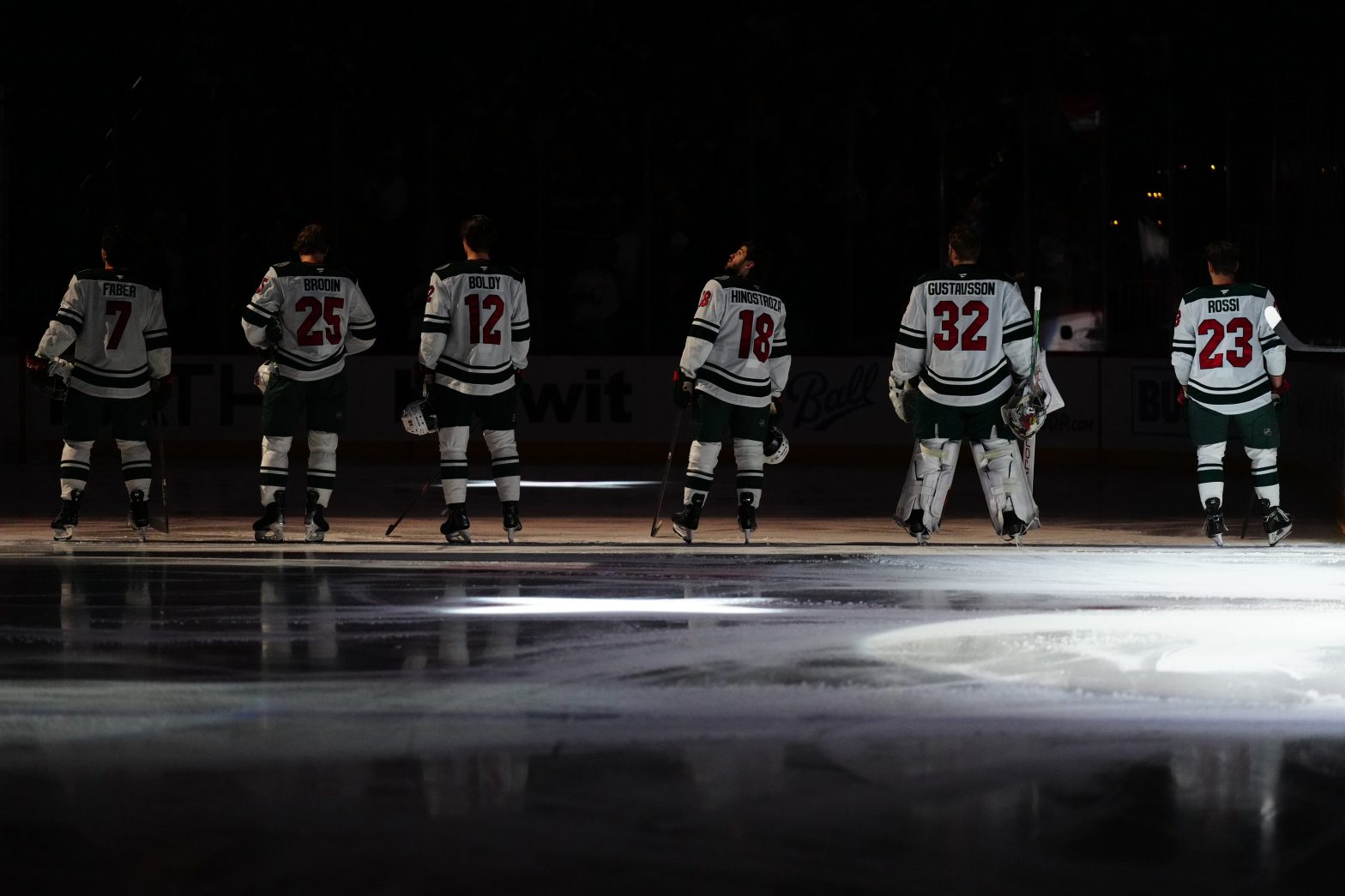The never-ending saga of Marco Rossi’s contract negotiations got a new wrinkle recently when NHL insider Cam Robinson said that the situation may result in the Minnesota Wild’s talented young center missing training camp.
That update is just the latest in a string of incidents that have made for an acrimonious summer between Rossi and the Wild. To recap, the Wild have shown their willingness to trade Rossi, but have been unable to find the right deal. Rossi recently expressed frustration with the way the playoffs went in an interview with an Austrian outlet.
While the relationship is strained, the Wild and Rossi must agree on the forward’s future before he misses training camp. If he isn’t there when camp starts, it would be a disastrous result for the player and the organization.
Before delving too deeply into the consequences of Rossi missing training camp, it is essential to acknowledge that this sort of chatter is often just a negotiating tactic. Restricted free agents have little recourse in negotiations with their teams. Taking the negotiations down to the wire is one of the few areas of leverage they can wield to get their contract. Teams want their players to go to camp, and that deadline is frequently a motivator for both sides to bridge their differences.
While most RFAs and their teams resolve negotiations before training camp, it isn’t unheard of for contract talks to extend past training camp and sometimes even into the regular season. Those occasions should serve as a cautionary tale for the Wild and Rossi.
A recent example of the dangers of letting contract negotiations linger occurred last year when the Boston Bruins struggled to secure a deal with their franchise goaltender, Jeremy Swayman. The Bruins were clearly committed to Swayman after trading Linus Ullmark, but they still couldn’t reach an agreement with Swayman’s team during training camp.
Swayman ultimately inked an eight-year deal worth $8.25 million per year, but not before missing training camp and the preseason. From there, the goaltender had by far the worst season of his young career. His save percentage dropped from .916% to .892%. His goals saved above average decayed from a sterling 16.4 to a minus-12.6.
Not being there for training camp wasn’t the sole factor in Swayman’s down season. Still, the team acknowledged it affected his early-season performance, especially with then-head coach Jim Montgomery saying, “I don’t think missing training camp helps anyone. That’s why you have training camp.”
The Bruins/Swayman saga isn’t the only notable occasion where stressful contract talks had adverse effects on a season.
Johnny Gaudreau regressed from 78 points to 61 in 2016-17 after missing the start of training camp. While Gaudreau and the Calgary Flames ultimately repaired their relationship for a few years, they got less than ideal results in his age-23 season, which should have been one of his most productive as a professional.
Kyle Turris and the Phoenix Coyotes faced a situation that highlighted how relationships can deteriorate in contract disputes. Turris missed training camp at the start of the 2011 season, but ultimately signed with the Coyotes. Still, the team traded him to the Ottawa Senators after only playing six games.
Rossi could start slow if he misses camp, and the Wild could set a bad precedent for future negotiations. That’s why the most important cautionary tale isn’t Jeremy Swayman or Johnny Gaudreau, but William Nylander’s contract situation with the Toronto Maple Leafs in 2018.
Like Rossi, Nylander was a skilled young forward who wasn’t the centerpiece of the roster but was still a vital part of a talented core. His career mirrored Rossi’s almost exactly: Nylander scored 48 goals in 185 career NHL games, while Rossi currently has 45. They each finished sixth in Calder voting in a loaded field for Rookie of the Year honors, and their teams openly shopped them at times.
Nylander’s contract extension was necessary, but it even more crucial was that Toronto would have to extend Mitch Marner and Auston Matthews shortly after, just as Minnesota’s eyes are already set on Kirill Kaprizov’s future, as well as eventual deals for Zeev Buium and their other top prospects.
When Nylander’s contract talks dragged past training camp and into December of the 2018-19 season, he had the worst campaign of his career, scoring only 27 points in 54 games. The real damage wasn’t just his 27-point year (which he has since recovered from), it was what came next.
Nylander’s saga created an adversarial relationship between Leafs management and their young stars. A year later, Marner nearly held out too, before signing a monster six-year deal worth $10.893 million per season.
Matthews also received a considerable $11.634 million extension, and Toronto never secured the kind of cap-friendly deals that keep contenders together. The team kept their core, but never could afford any high-quality complementary pieces.
That’s the lesson for the Wild: Rossi’s contract isn’t just about Rossi. How they handle it could set the tone for every negotiation that follows, including the one with Kaprizov that will define the franchise for the next several seasons. It could affect Buium, Danila Yurov, David Jiříček, Jesper Wallstedt, and any other breakout player.
Rossi’s extension talks becoming a training camp distraction could negatively impact his season, and that’s probably the best-case scenario. At worst, the team risks creating a situation where the organization and its players don’t trust one another.
It would be the right move for everyone involved to ensure a contract or move is finalized before teams break into camp. The Wild can’t afford to let the Rossi saga become their Nylander moment. That decision could cost a season, but it has even higher stakes. It could shape the future of future Wild negotiations.
https://hockeywilderness.com/news-rumors/minnesota-wild/marco-rossis-contract-situation-isnt-just-about-marco-rossi-r30869/
